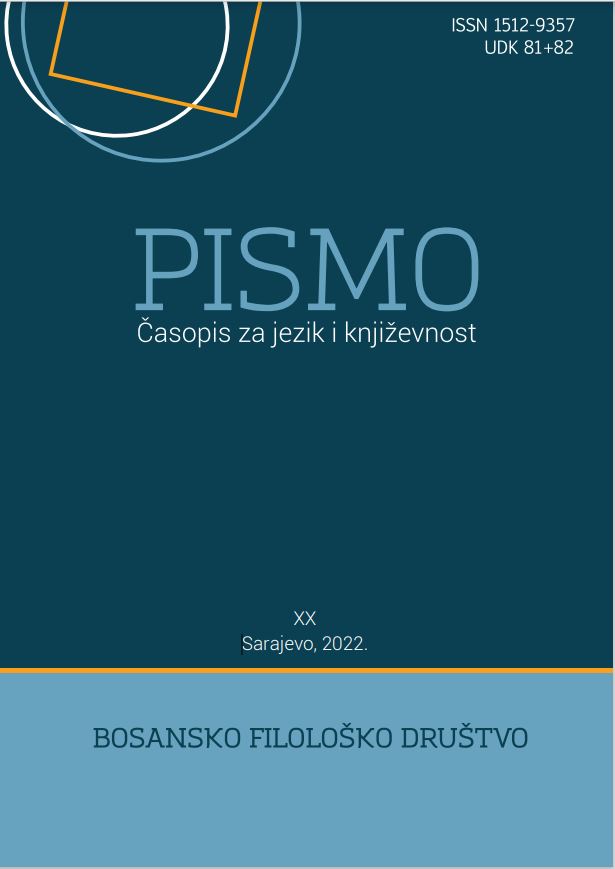Narrative Intricacies and Cultural Assumptions in Kazuo Ishiguro’s “A Family Supper”
Narrative Intricacies and Cultural Assumptions in Kazuo Ishiguro’s “A Family Supper”
Author(s): Frédéric Dumas, Ksenija M. KondaliSubject(s): Short Story, Theory of Literature, American Literature
Published by: Bosansko filološko društvo
Keywords: suspense; Japaneseness; identity; cultural differences; American cultural imaginary;
Summary/Abstract: This article examines Kazuo Ishiguro’s short story “A Family Supper,” first published in 1980, in the early phase of his writing career. The story shares similarities with his other fictional works of that period, primarily in terms of setting and themes linked to the author’s homeland of Japan. The paper explores the complex narrative strategies and their role in introducing issues that include intergenerational tensions, cultural interactions, estrangement and belonging. With methods from narratology and critical text analysis in the first section, memory and spatial studies in the second section, this research demonstrates how Ishiguro manipulates the readers’ attention and cultural assumptions about Japan through narrative techniques that build on suspense and illusion, combined with unreliable homodiegetic narration in order to debunk simplistic understandings of Japanese culture. Since the story is set in post-World War II Japan and the protagonist returns home after several years spent in California, notions of Japaneseness and Americanness are considered in light of geographic displacement and identity. This paper also elucidates the author’s powerful literary craft in this story that presents the ambiguity of memory as the protagonist’s remembrances reflect the tenuous nature of human existence
Journal: Pismo - Časopis za jezik i književnost
- Issue Year: 2022
- Issue No: 20
- Page Range: 141-163
- Page Count: 23
- Language: English

